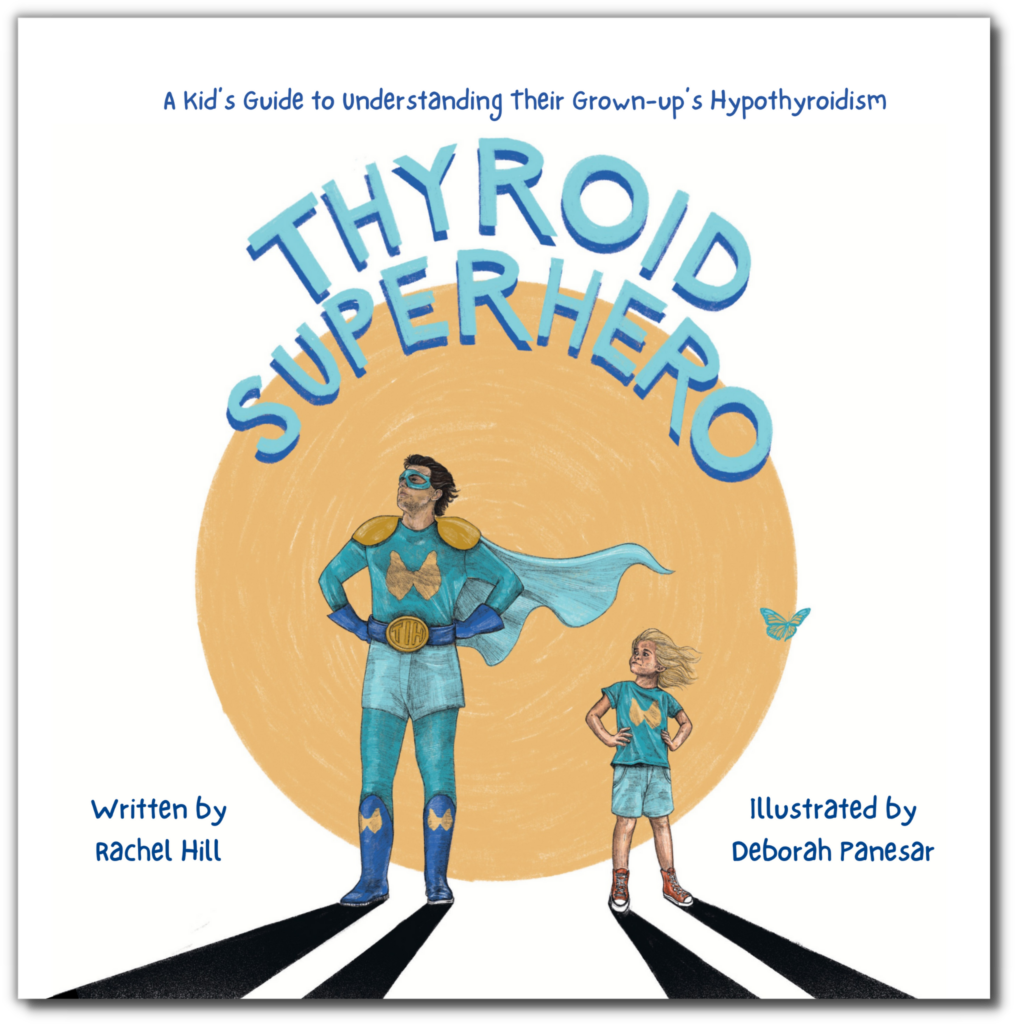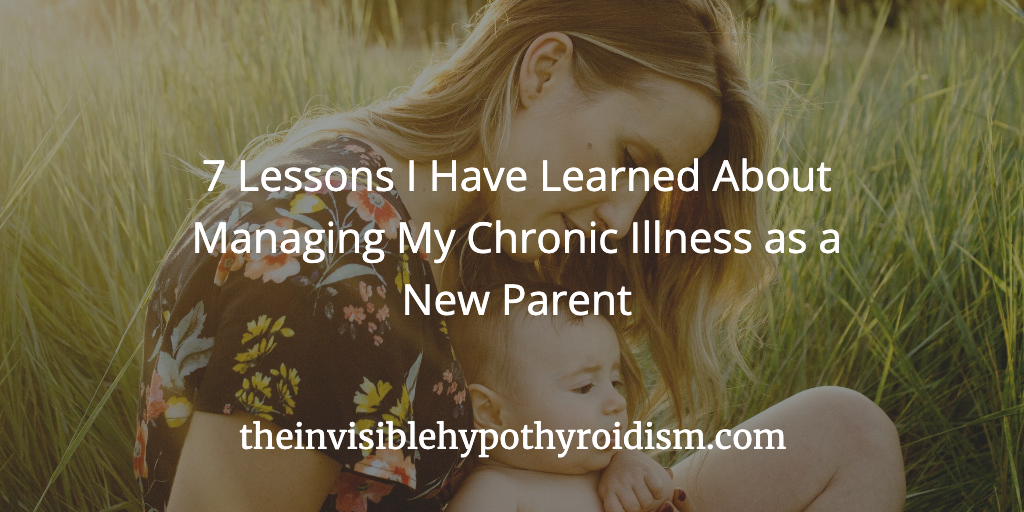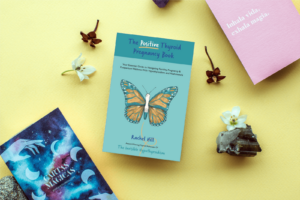Raising a family when you have a thyroid condition such as hypothyroidism (an underactive thyroid) or Hashimoto’s, can understandably feel difficult.
Predicting someone’s thyroid health when they also have the added task of everything that comes with being a parent can be tricky. For some, they feel the same as pre-parenthood, but for many, they find that their health is more uncertain.
People with a thyroid condition are often known to push themselves each and every day to keep on going, keep on raising their families and pushing through difficult days, despite their own body fighting against them. Many thyroid patients who are also parents tend to be even more exhausted and stressed compared to other parents, due to this added complexity.
On a thyroid flareup day it can feel impossible to parent. I know because I’ve been there too.
In this article, you will find the top tips I have learned through my own personal experiences as a parent with autoimmune hypothyroidism.
1. Although It’s Hard at Times, Prioritise Good Food and Stay Hydrated
When you’re pregnant or on good health days, stock up the freezer on healthy meals. I batch cooked loads of bean chillis, bologneses full of veg, cottage pies, homemade Thai curry pastes I just needed to add to chicken etc.
I’m pretty sure that if I didn’t do that I’d have been eating takeaways and reaching for foods that were void of much nutrition a whole lot more during the first year of parenthood. And that makes me feel even more tired and sluggish. Now my little one is older, I get him involved in the cooking. He likes to watch me chop vegetables and we sing as we stir pots.
The best way to stay hydrated? Carry a water bottle with you all day, even at home. Look for BPA and BPS-free water bottles that won’t interfere further with your hormonal health. Every time I see the water bottle sat on the sofa, table or in the pushchair when out and about, I sip sip sip. If I don’t keep on top of staying hydrated, I soon become fatigued, cranky and develop a headache, and feeling that way certainly doesn’t help with caring for a little one.
2. Make Time For Rest
I felt worn out by the time my little one was six months old because I was trying to keep up with the other mums. They were taking their babies out and socialising every day. When I tried to do this too, my health suffered. I was SO tired.
I figured out that my happy medium involved taking my child out two or three times a week and only for a few hours at most each time. Sometimes just an hour was long enough. If I did more than this, I soon brought on thyroid flares. On top of the sleep deprivation, going out and doing too much too often was a recipe for disaster when it came to managing my health condition.
I also made Fridays a PJ day for a while! During the first year of his life, my son and I would spend Fridays in our pyjamas, at home and very little planned. This would allow me some time to recuperate a little before the weekend.
A lot of people also nap during the day when their little one does, or opt to go out in the morning, staying home in the afternoon or vice versa. I particularly love this balance and have alternated whether we get out for an hour in the morning and chill at home for the afternoon, or do it the other way round, depending on where we currently are and what works.
I briefly felt a little anxious that I wasn’t ‘parenting right’ by organising my day in this way, but then I remembered something that is often not at the forefront of my mind these days; I have a chronic illness.
I’m a mum, yes, but I also have health conditions to keep in mind and other mums do not, and so they may be able to cope with being busier than I am rather easily.
Learning how to balance things so that I’m not completely exhausted is a real learning curve and that has included turning down some invites to afternoon activities because we were out all morning.
It’s OK to set boundaries as a mum with chronic illness. It’s OK to not overcommit and feel as if you have to jam-pack your day. It’s OK if you don’t conform to this expectation that mums should be out all day and non-stop busy with their children. You do whatever works for you, your health and your family!
3. Go To Bed On Time!
If I don’t make sure I’m in bed by 10pm, I feel awful the next day. When you have a little person waking you up in the night and then needing you on demand all day, do whatever you can to get as much sleep at night as possible.
See here for my tips around creating a good sleep routine to maximise rest.
Don’t forget that The Positive Thyroid Pregnancy Book: Your Essential Guide to Navigating Fertility, Pregnancy & Postpartum Wellness With Hypothyroidism and Hashimoto’s also covers my two pregnancies with hypothyroidism and Hashimoto’s in a lot of detail, while also compiling ALL the info you need to know for the best start for you and your baby.
4. Look at Exercise
Since having a child has made me more tired most days, I opt for walks and yoga as my main exercise right now. I can do both at my own pace and neither exacerbate the tiredness.
When we have chronic health conditions and especially with thyroid issues, it’s helpful to carry on reassessing our current needs and abilities over time. For some seasons of life, you may be able to tolerate more or higher intensity exercise, and for others: less.
Read about managing this here.
5. Stay On Top Of Your Pills
I had to set reminders on my phone for my medication and supplements. I used to remember to take them no problem before having a baby, however, when the baby was getting me up at all times of night, my routine for remembering to take them was thrown off! But taking them (and taking them consistently) is so important for my health.
Find ways to remind yourself to take them consistently.
6. Find Time to Unwind
A couple months postpartum, I asked my husband to start taking the baby out for an hour each Saturday morning so that I could have a bath, wash my hair, shave my legs and have some regular ‘me time’ which I could look forward to each week.
I made a big difference to how I felt, mentally and physically.
I also prioritise time for other things that impact my overall health and wellbeing, such as reading books, gardening and baking, which I really enjoy. When my child goes for his nap, I allow myself just fifteen minutes maximum for cleaning and ‘boring adult jobs’ and then I make myself sit and enjoy a book with a cup of tea for the remainder of his nap.
If you frequently find yourself saying “I don’t have time for X”, try saying “I don’t prioritise time for X” instead and see how that makes you feel.
7. Pull in Support Where You Can
Not all of us luckily have friends and family close by, which means that I have often struggled with tough thyroid health days.
However, for those that do have someone who can help:
- Can they watch the kids for an hour while you rest in bed?
- Can they bring you a meal? Some soup or something else nutritious?
- Can your children have a playdate out the house? Perhaps you know one of their friend’s parents quite well, who would welcome them coming round to play for an hour or two while you rest?
Our top priority should be recuperating when our health condition flares up, wherever possible, otherwise we risk the flare dragging on for longer. Making small changes in order to reserve as much energy for recuperating as possible can really help.
Do you have any tips for new parents with a health condition? You can share in the comments.
Related post: Can I Prevent My Child From Developing Hashimoto’s or Hypothyroidism?
See also:

The book Thyroid Superhero: A Kid’s Guide To Understanding Their Grown-up’s Hypothyroidism, which helps kids to understand their caregiver’s thyroid medication, flare days, symptoms and much more. Add it to their bookshelf today.






